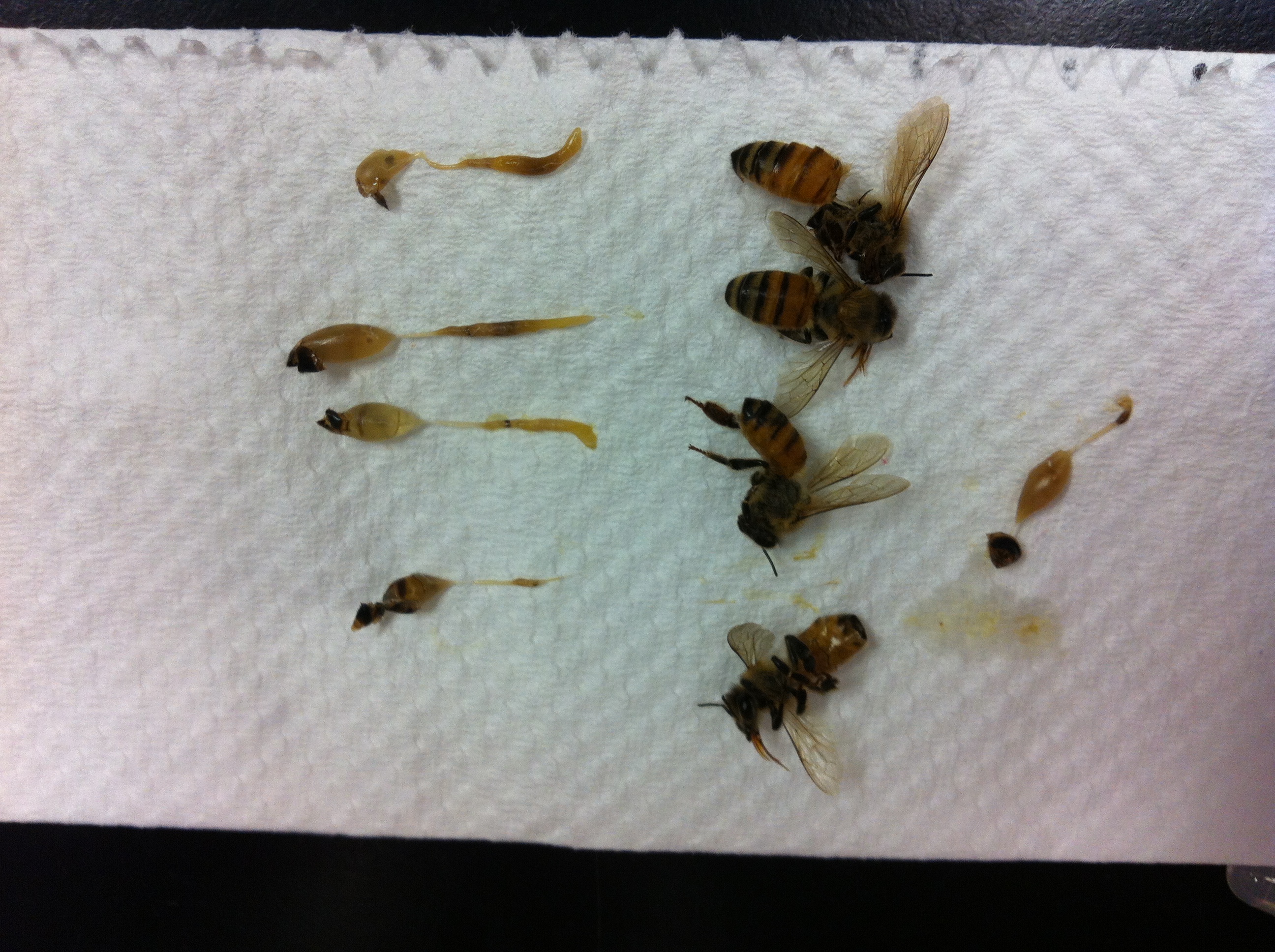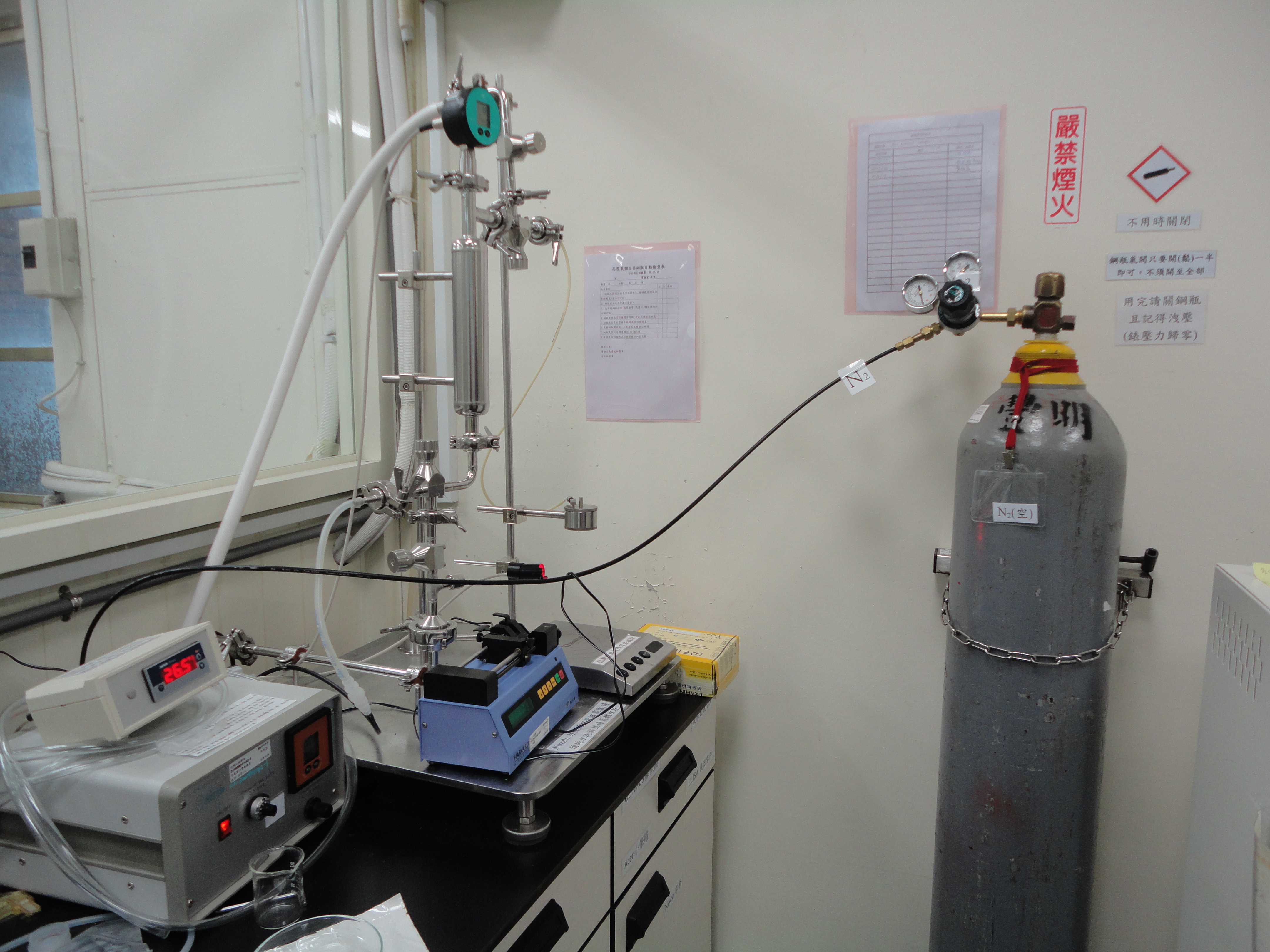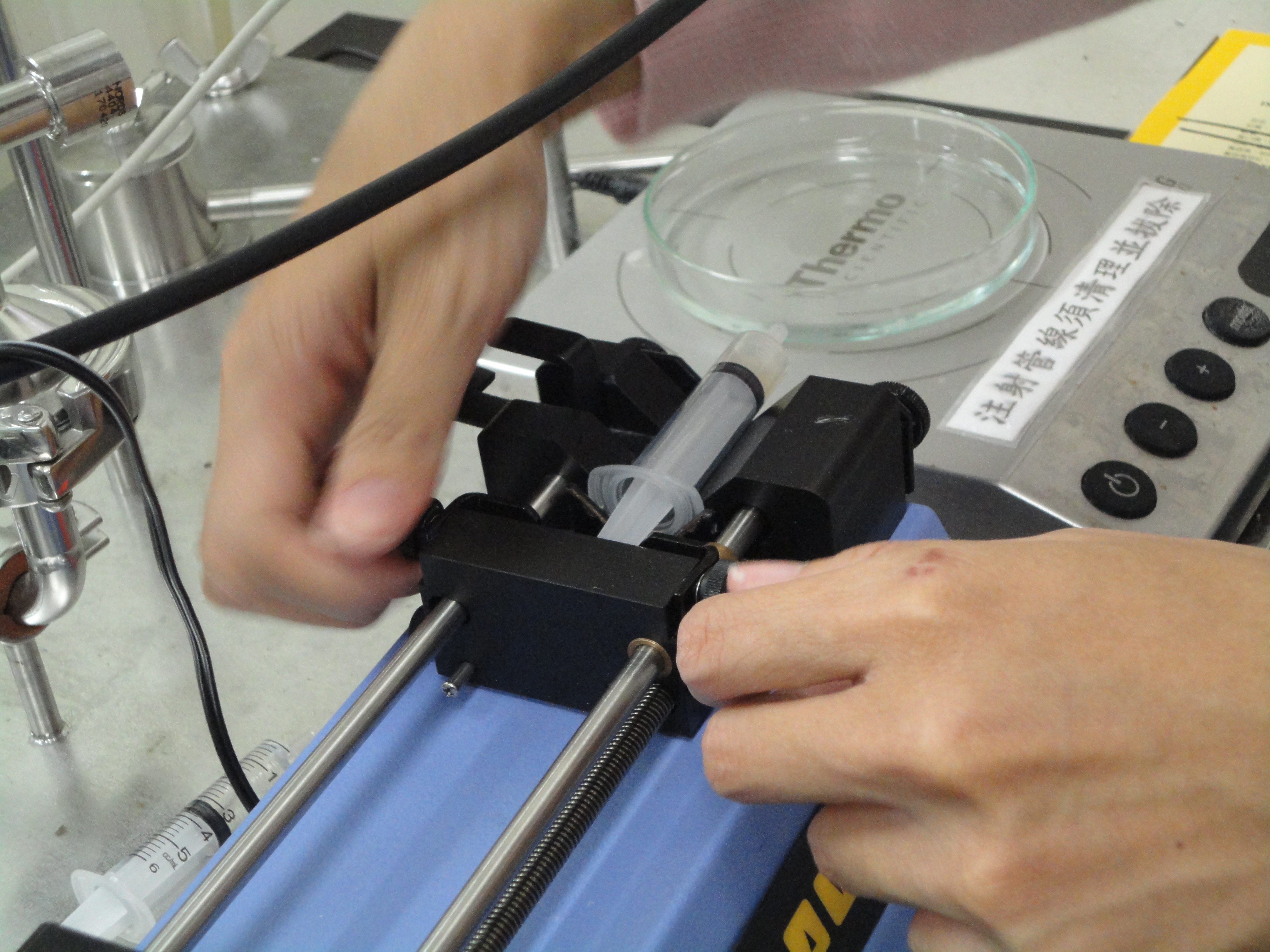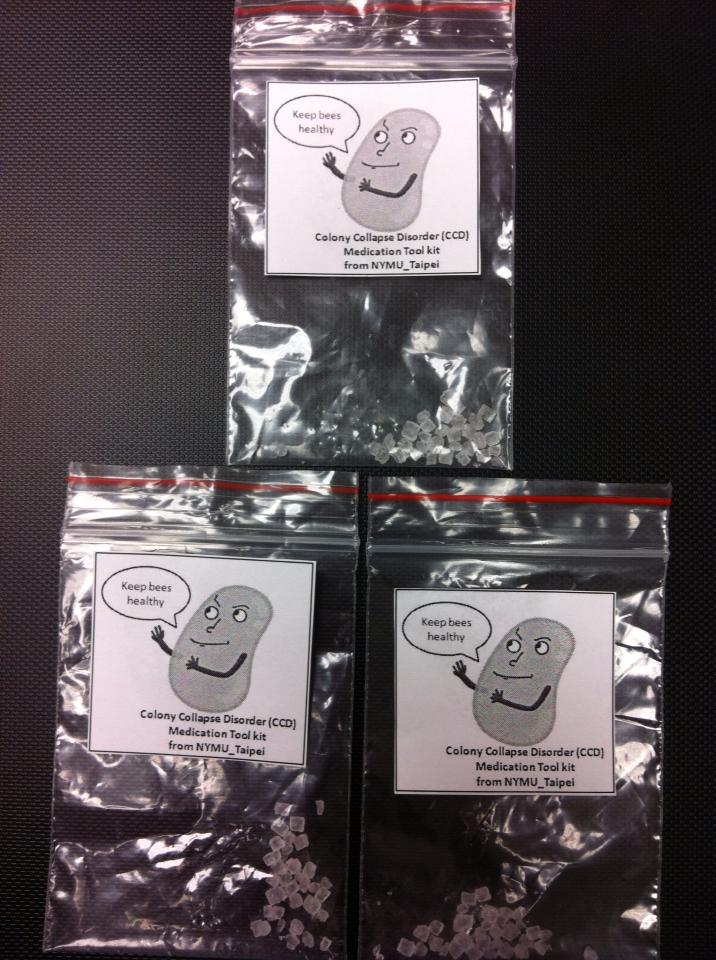Team:NYMU-Taipei/HumanPractice/HumPracticalApp
From 2013.igem.org
| Line 34: | Line 34: | ||
{| | {| | ||
|- | |- | ||
| - | |[[File:NYMU_YMCEpowderdevice.JPG|thumb|250px|''' | + | |[[File:NYMU_YMCEpowderdevice.JPG|thumb|250px|''' Our device to make ''Bee. coli'' powder''']]||[[File:NYMU_Powder.jpg|thumb|250px|''' The ''Bee. coli'' powder''']] |
|} | |} | ||
Revision as of 03:55, 28 September 2013


Contents |
Practical Applications in the Environment
How we can help beekeepers and Bees?
To make our project in practice, we try out every efforts. First, we want to make beekeepers in taiwan aware of the seriosness of CCD problem, so we visited some of them and spread the CCD problem. We also helped them test their bees to make sure if they were infected with Nosema. Quite dissapointed, ALL of the bees were infected with Nosema...
How could Bee. coli survive inside bees ?
For bees, bee. coli are not tasty. But we still need to let all of the bee.coli entering into the gut of bees! So we decide to make bee.coli encapsulated! Then bees would be unintentionally have them when they are intaking their food!
What could we do to benefit bees, beekeepers and the environment?
We found out a way to provide our Bee. coli easily , that is, to make the Bee. coli liquid becomes powder. Through this, beekeepers could easily store Bee. coli without any special professional needs. To manufacture the Bee. coli powder, we coolaborated with our chemistry lab and also had some interview with the experts to improve our thoughts.
 "
"


















